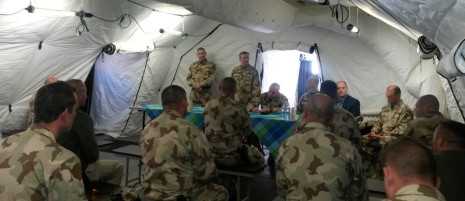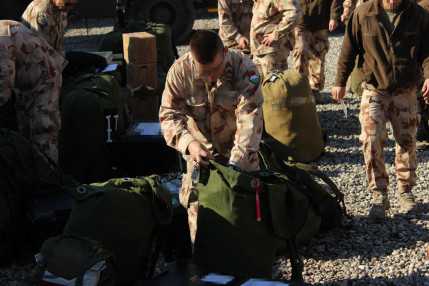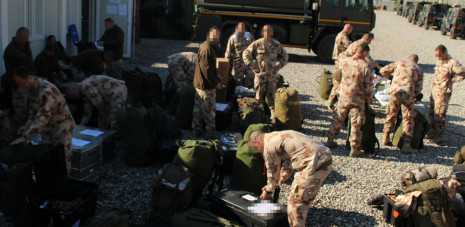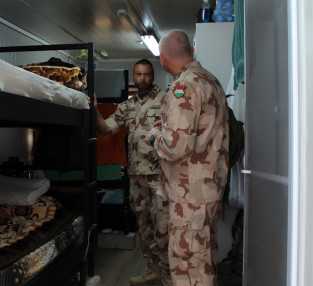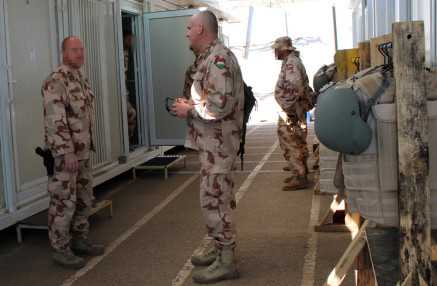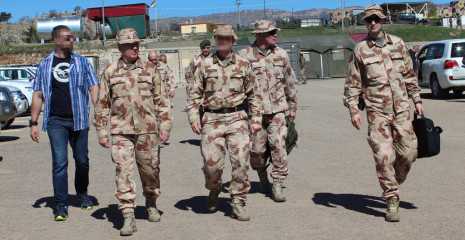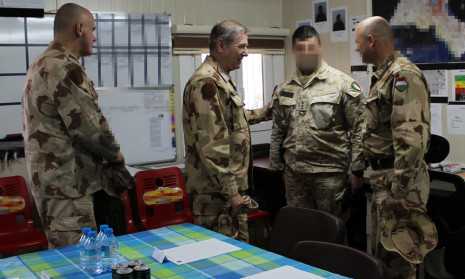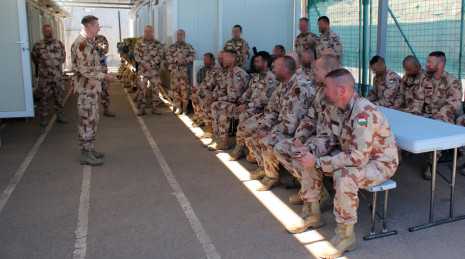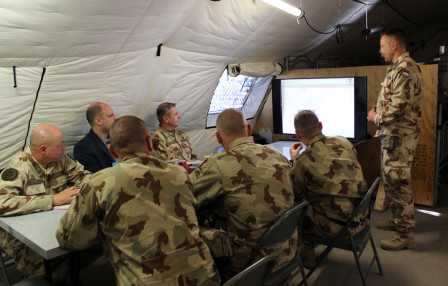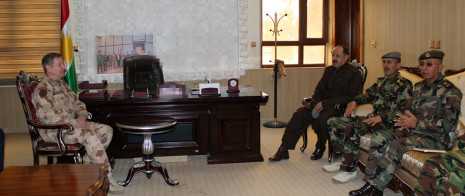Visit to the Mission in Iraq
Szöveg: General Staff | 2016. március 11. 9:00The Chief of Defence recently paid a visit to the Hungarian troops serving in Iraq. Gen. Dr. Tibor Benkő also met the commanders of command elements in charge of planning the tasks of the contingent.
Galéria
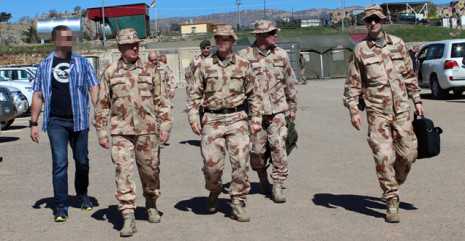
The general also met the commanders of command elements in charge of planning the tasks of the contingent, including the commander of the US Task Force, the Peshmerga commandant of the Kurdish training centre in North Iraq, and the German commandant of the Kurdistan Training Coordination Centre (KTCC). Afterwards, the general visited the Kurdish Ministry of Peshmerga Affairs. During all meetings, the military leaders and those of the ministry praised the Hungarian troops’ high training and professional standards and their attitude. The consul general representing Hungary’s interests in the region also received the delegation. At a discussion held in the consulate general, the consul general emphasized the importance of Hungarian military presence and informed the chief of defence about the mission and tasks of the consulate general.
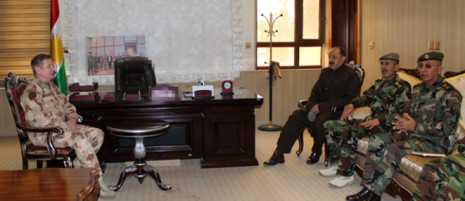
Besides the tasks related to the training of the Iraqi Kurdish Peshmerga forces, the Hungarian contingent also performs force protection duties on Iraqi military bases. Its primary objective is to contribute to improving the security situation in the war-torn country, and thereby to improving the living conditions of the local population. It is equally important to Hungary and, in a wider sense, to Europe to make sure that the people there can make a living in their own country instead of further increasing the migration pressure on the European continent.
